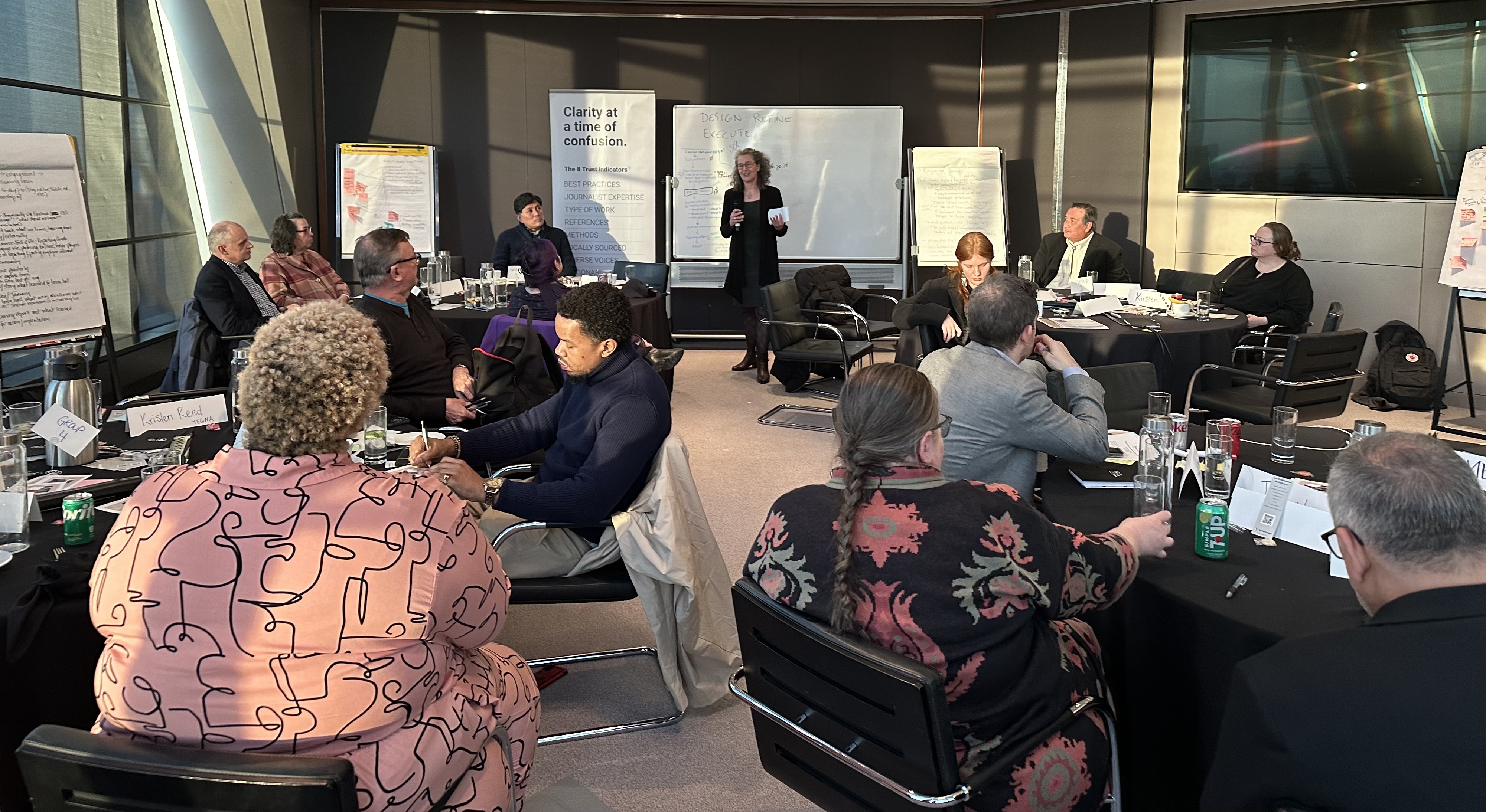To assess trustworthiness, Native news users prioritize ethics and depth
While Native community members value news, they’re reluctant to trust it. Groundbreaking research by the Trust Project with the Indigenous Media Freedom Alliance has yielded important insights to address this challenge.
Native communities, including nearly 700 federally and state-recognized tribes in all, are among the fastest-growing populations in the United States. Native nations’ interests and actions have far-reaching implications for all Americans in every state, touching on land and water rights, environmental protection, child welfare, taxation and more.
In user-centered design research, Trust Project researchers gathered expertise from 14 Native journalists before interviewing 25 Native people across five states about how and why they do and don’t engage with news.
In one-on-one interviews about non-Native news, we heard frustration and pain around:
- Invisibility – Without news coverage, Native Americans lack the opportunity to shape their own narratives, making it easier for policymakers to ignore them.
- Helicopter journalism – Quick, superficial news coverage comes at the expense of depth and multiple perspectives. In contrast, journalists who spend time on location or collaborate with local colleagues are more likely to provide accurate context and framing.
- Incomplete coverage – Stories of broad significance, such as murdered and missing Indigenous people, often are covered only in big takeouts and lack local perspectives.
As pertains to Native news outlets, we heard concerns about:
- Avoidance of controversial issues.
- Tribal government control; the absence of press freedom laws.
- Over-reliance on official sources.
- Not filling the gap on major issues commonly under-reported elsewhere.
Research participants were more likely to give Native news outlets, whether independent or tribally owned, a pass for any such shortfalls — citing better representation and coverage overall. They recognized both the scarcity of Native outlets and lack of press freedom within most tribally owned outlets.
This was a key reason they value and want to trust non-Native news media.
Two initial focus groups with Native journalists highlighted core areas to address. Their recommendations for structural change in reporting included:
- Learn about sovereignty as both a legal concept and core community value, which is essential for accurate reporting on both local and national issues.
- Build ongoing relationships with Native communities, which fosters trust and deepens understanding of Native issues.
- Create partnerships between Native and non-Native newsrooms, which enable comprehensive coverage and help ensure accuracy.
- Credit the work done by Native journalists, which is essential to ethical journalism about Native issues.
Our upcoming reports will offer more insights and recommendations. To see a sampling of user profiles developed from this research, visit Native User Profiles in our Resources section.
